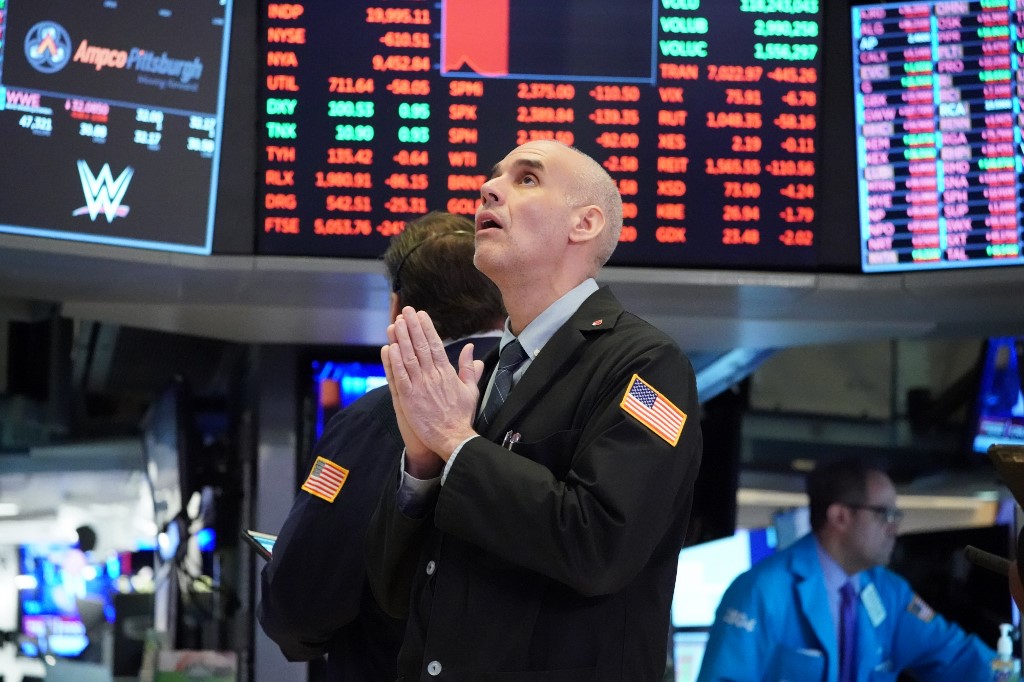(ATF) Asian markets are getting an early boost from central bank actions overnight and the move by US Senate Republicans to inject more than $1 trillion of fiscal stimulus into the US economy.
“While politics can be difficult in an election year, we ultimately believe that the gravity of the current situation is likely to force Congress and the Administration to reach a bipartisan agreement to a massive fiscal package,” Deutsche Bank analysts said in a note. “For historical context, the structural budget deficit increased by about $800 billion in response to the financial crisis in 2009.”
The economic damage from the coronavirus containment measures may be temporary but its scale is frightening global markets, BlackRock said in a note. They expect the global economy to return with limited permanent economic damage as long as authorities deliver an overwhelming fiscal and monetary policy response to bridge businesses and households through the shock.
The market’s day-to-day movements are being driven by a massive demand for dollars and investors are keen to see if the central banks can regulate supply quickly enough.
The US Federal Reserve announced the establishment of temporary US dollar liquidity arrangements from other central banks. It is yet to be seen if the easing of the liquidity crunch will translate into an easing of the credit crunch. DBS economists said hoarding of dollars appeared to be the main trade and this was hurting asset classes across the board. The three month Libor-OIS spread had blown out to 98 basis points (bps) from around 23 bps in end-February.
“As a result, companies are paying 27 bps higher for their dollar liquidity needs since the Fed cut by 100 bps over the weekend. Similarly, high-yield and investment-grade spreads are still pushing wider as a combination of credit and liquidity risks hit,” they said.
However, a peak would have to be seen in this human tragedy before any significant impact is felt from the central bank actions. About 244,000 people have been infected by the coronavirus, which has now claimed more than 10,000 lives.
“This is probably a necessary, but not sufficient, condition to turn the tide,” Capital Economics said in a note.
“The peak of the dollar during the Global Financial Crisis (in 2008) coincided not with the Fed’s swap programmes, but with the trough in the S&P 500, by which time the worst strains in money markets had eased. And while action by policymakers helped put a bottom under the markets in 2009, fiscal and monetary policy cannot cure a pandemic. A sustained retreat of the dollar may have to wait until the coronavirus outbreak shows clear signs of fading,” they said.
Other central banks also moved quickly, with the Bank of England cutting interest rates to 0.1% and boosting its quantitative easing programme by £200 billion to £645 billion.
“The monetary policy transmission mechanism appears somewhat impaired, and may well require further tweaks over the coming days,” DBS said in a note while adding that ECB policies to purchase corporate credit may be better targeted and that for the US Fed, the expansion of asset types would require Congressional approval. “Until credit and funding issues get resolved, market participants will be jittery.”
In early deals, the Kospi benchmark has jumped 3.3 %, while the Australian benchmark S&P/ASX 200 was 4.2% higher and the MSCI Asia Pacific ex-Japan index was up 2.6%.
Overnight, the Dow Jones Industrial Average climbed 0.95%, the S&P500 added 0.47% and the Nasdaq Composite jumped 2.3%.
UMESH DESAI
Umesh Desai is Asia Times Finance Editor. Prior to his current role he was at Reuters for 19 years before which he was a credit ratings and equity research analyst. A chartered accountant by training, he is based in Hong Kong. More by Umesh Desai






















